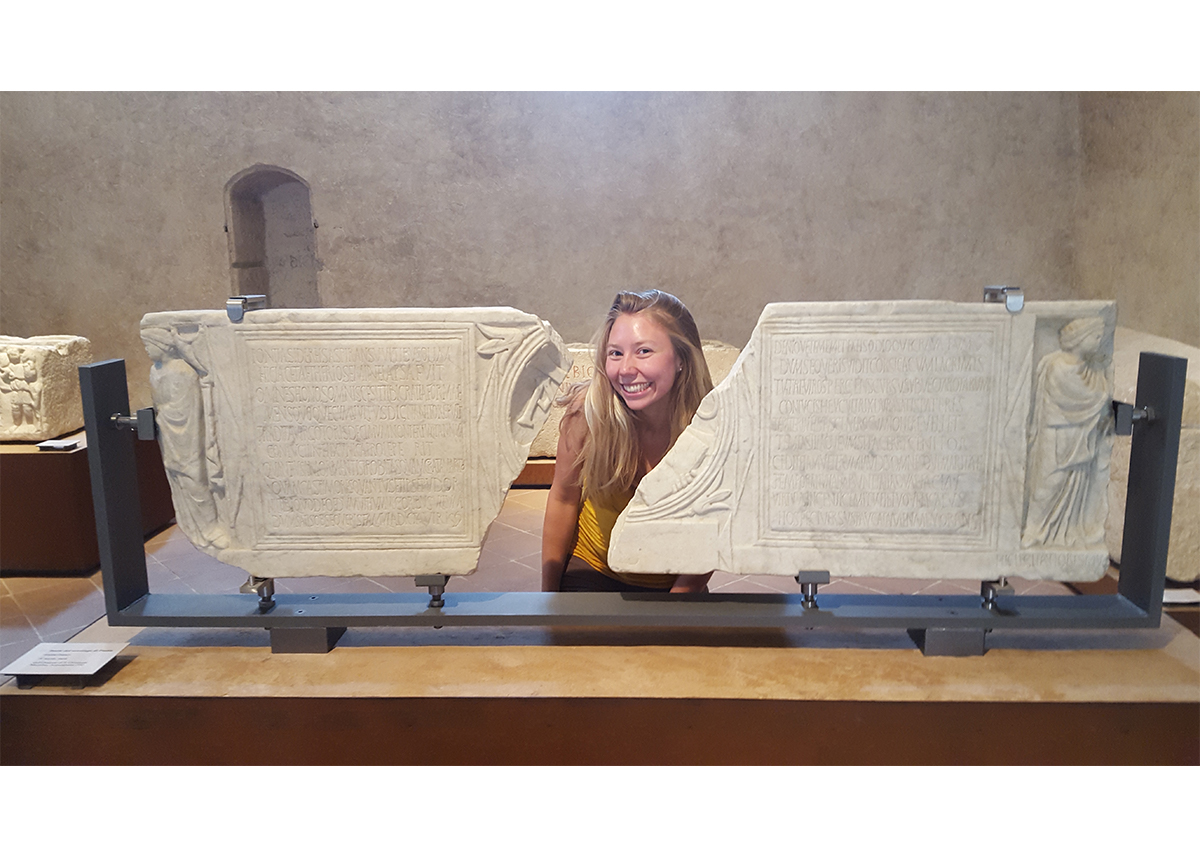Bringing Voices of the Past Back to Life
This semester the department of modern and classical languages welcomes Dr. Kristin Harper as a classics professor. After graduating with her PhD in classical studies from the University of Missouri in 2019, Harper applied for the Missouri State position for the opportunities to teach a wide range of classes, develop curriculum, and participate in outreach. She said when she interviewed on campus she was happy to find several like minded and enthusiastic faculty as well as engaged and excited students. Harper has already become active in the campus community and currently serves on the Modern and Classical Languages Diversity Committee and General Education development committee. Within these committees, the department is working to develop cultural competence and humility for a more global world through the development of courses and other resources. Through her years of teaching experience, Harper has led classes on Latin, mythology, and Greek and Roman culture, and this semester is teaching mythology and Latin.
“It has been challenging starting at a new position during a global pandemic, and I am thankful for the support of my colleagues and students!”—Kristin Harper
Sharing the Ancient World with Others

Harper first became interested in the Classics while studying Latin in high school. During that class she learned a lot about mythology and ancient culture and was captured by the idea that modern people could connect with ancient people from all over the world on emotions or politics. She knew she wanted to teach the humanities and got the opportunity to travel to Italy in college to excavate. Since then, she has worked to share the ancient world with others.
Harper’s research focuses on the gravestones on young women in the late Roman empire (200s-400s CE) and the poems inscribed on them by family members and loved ones. Through studying these poems left for women outside of the elite class, she hopes to learn more about women’s roles and influence in culture and early Christianity. Harper is currently working on two articles based on these poems, taking into consideration both the literary breakdown of the poetry as well as any archaeological evidence from the sarcophagi the poems are carved into. This research is a continuation of a research trip she took a couple years ago to Italy where Harper said she “felt like Indiana Jones, going to archaeological sites and gaining access to the closed-off sections of the Vatican museums.”
Harper has participated in two excavations in Italy, both in small hill towns. One site was a Roman bath complex that had previously been used by a pre-Roman tribe to worship a nymph. The second site was a medieval church in a farmer’s vineyard, where she discovered the burial of a man from the 1100s CE. Harper said that the experience “put me in touch with my own mortality and gave me a sense that I was bringing this person’s memory back to life!” She hopes to return to the second site in the future.
Outside of teaching, Harper is working on a number of projects. She currently serves as a volunteer manager for a non-profit called Save Ancient Studies in America (SASA) and as the organizer for the Regional Late Antiquity Consortium of the Southeast (ReLACS). ReLACS is an annual interdisciplinary conference that was to be held in Missouri for the first time this year. Though most of the speakers have been rescheduled, the keynote lecture for the conference will be held as a Zoom session on Friday, November 6th at 4:00 p.m.

